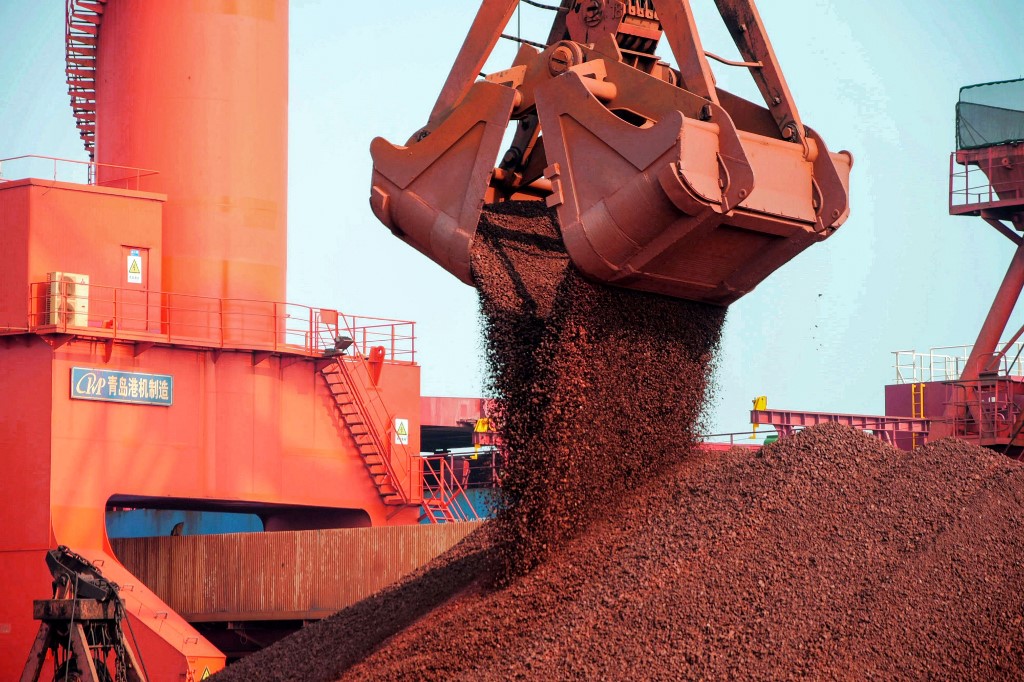(ATF) Surging iron ore prices, which have seen it dubbed the “crazy stone”, are unreasonable, a Chinese industry chief has warned.
The main contract price of iron ore futures on the Dalian Commodity Exchange broke through 1,000 yuan/ton last week, rising to 1,042 yuan/ton – a single-day increase of nearly 10% and a record high in seven years, according to Sina Finance.
Qu Xiuli, vice-chairman and secretary-general of the China Iron and Steel Association, said the unusual “skysurge” of iron ore prices was unreasonable and unsustainable because the price had little to do with supply and demand.
Read more: China factory output rises 7% as economy shakes off pandemic
China’s iron ore dependence on foreign countries is as high as 80% and the increased costs come at the same time that China’s main iron ore supplier, Australia, is looking to diversify its customer base and relations between the two countries are at an historic low.
And to add to China’s problems, the prices of rare earths, the production of which the country dominates, are falling. They are now said to be at barely at break-even point and losses in production are about to kick in.
While the market price of rare earths has generally risen in recent weeks – the price of praseodymium and neodymium oxide has increased from 267,500 yuan/ton to 398,500 yuan/ton, an increase of 49%, – market analysts say this is only a short-term rebound.
Thermal coal
To top it all, thermal coal prices have shot up 25%, as 50 ships full of the stuff from Australia still sit waiting to be unloaded at Chinese docks.
Qu Xiuli blamed three factors for the iron ore price rise – demand growth, exporters’ monopoly and capital market speculation.
But China has, according to Sina Finance, discovered the “road to break the game” when it comes to the “difficult pricing” of iron ore and rare earths.
Li Xinchuang, the director of the Metallurgical Industry Planning and Research Institute, said China can strengthen its voice in the iron ore procurement market by speeding up mergers in the steel industry, using more scrap steel, forming a purchasing alliance and reducing domestic iron ore taxes.
OVERSEAS EQUITY
Li said: “Chinese companies should establish multi-method stable iron ore bases overseas to increase the proportion of China’s overseas equity in mines, and fundamentally change some countries in order to monopolise the supply of iron ore.”
Chinese officials are also aware it is “imperative” for them to improve the price mechanism of rare earths.
China Nonferrous Metals News, a subsidiary of the China Nonferrous Metals Industry Association, has suggested that the state introduce total sales price control. It needs “pricing power” the association says.
China has already taken some action. In July the Ministry of Industry and Information Technology issued the first batch of rare earth supply indicators for 2020. The indicators stipulate that the total amount of mining, smelting and separation is controlled at 66,000 tons and 63,500 tons respectively for two unnamed elements.
GOOD NEWS
There was some good news for Chinese industry as rare earth praseodymium and neodymium oxide prices rose sharply on December 16.
Securities analysts, quoted by China Nonferrous Metals News, believe this is down to new energy vehicles, energy-saving inverter air conditioners and wind power advancements.
According to the North Rare Earth Company’s December listing prices, the price of neodymium praseodymium oxide reached 428,000 yuan per ton, an increase of 15.7% from the November figure of 370,000 yuan, and the April quotation of 285,000 yuan – an increase of 50.2%.
But the current increase in rare earth supply is not large with the processing capacity of separation plants limited.
























